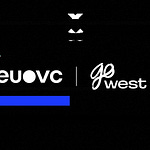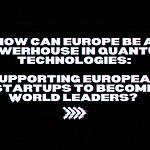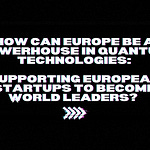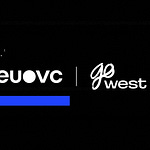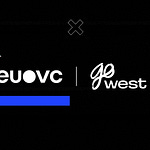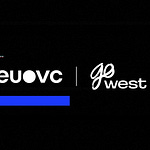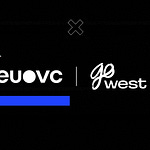In this episode, Andreas Munk Holm is joined by Joe Seager-Dupuy and Mike Martin, General Partners at True Global, a £1B investment firm focused on consumer and retail, to explore how AI transforms how consumer businesses are built, scaled, and experienced.
They unpack why consumer AI is more than a buzzword - it's unlocking entirely new market categories, reshaping broken UX flows, and expanding the definition of addressable markets. From agentic software and hyper-personalized health stacks to defensibility through data, brand, and workflow, this episode offers a deep dive into how to build and invest at the intersection of frontier tech and human behavior.
Here’s what’s covered:
07:27 Exploring Consumer AI Innovations
14:47 Challenges and Opportunities in Consumer AI
20:27 The Path to Agentic Business Models
25:27 Building Optionality in AI Products
26:23 Case Study: Superhuman's Agentic Email System
28:10 The Velocity of AI Announcements
31:10 Defensibility in Consumer AI
39:15 AI's Impact on Consumer Company Operations
43:07 The Disruption of Incumbents by AI Startups
📺 Watch the episode here or stream it on Spotify or Apple Podcasts—now with chapters for easy navigation on the Spotify/Apple episode🎧
✍️ Show Notes
Consumer AI: The UX Revolution You Didn't See Coming
True’s team breaks down why AI isn't just improving existing consumer experiences—it’s reinventing them. From planning a trip to managing your health, AI is collapsing fragmentation, enabling true personalization, and unlocking access in markets once limited to the wealthy.
Assistants vs. Agents: A Useful Mental Model
True segments the AI landscape into assistants (search supercharged) and agents (software acting autonomously). While assistants have already gone mainstream, agents still face key barriers—data, judgment, and trust—that will need to fall before mass adoption takes off.
Defensibility Reimagined: Brand, Data & Memory
As models commoditize, the battle shifts to the application layer. Defensibility now comes from proprietary data, sticky memory, vertical UX—and brand. True argues that consumer-facing trust and narrative are now more durable moats than algorithmic edge.
Startups vs. Incumbents: Efficiency, Velocity & the AI-Native Advantage
Startups born AI-native aren’t just faster—they’re structured differently. True sees a world where legacy bloat becomes a liability, and lean AI-forward teams outpace incumbents through cultural adoption, faster iteration, and brand-led UX.
The consumer sector is experiencing a resurgence, and at the heart of the revival is AI. For investors, the convergence of profound consumer trends and the inflection point of AI-led innovation presents a unique opportunity to build massive value pools, reshape industries, and back the next generation of category-defining companies. Here’s why we at True are excited about the next few years.
Where operational expertise and innovation work for you.
End-to-end coverage of Fund Admin, Tax, Accounting, Compliance, ESG, and more—enabling you to focus on what matters most: supporting visionaries and maximizing LP returns.
🧠 Consumer Deep Dive
Consumer spending represents a colossal share of the global economy, accounting for around 60% of GDP across OECD countries, around $12 trillion in Europe alone. This doesn’t include value created by companies serving consumers indirectly, such as ad-funded platforms like Meta and TikTok.
Historically, consumer startups have been a tougher bet for venture capital compared to enterprise-focused companies. According to research carried out by Forerunner, they’re less likely to reach later funding stages. Still, when they do, their outcomes are often outsized: consumer startups that reach Series B are more likely to IPO and are twice as likely to achieve $ 10 bn+ outcomes compared to their enterprise peers. Our analysis indicates that about 40% of European unicorns are consumer-focused, with household names like Spotify, Vinted, Revolut, and Deliveroo leading the way.
While the sector has faced headwinds in recent years, driven in part by unpredictable demand post-COVID, skyrocketing customer acquisition costs, and macroeconomic uncertainty, it’s heating up again. The emergence of AI stands out as a key catalyst for renewed interest from generalist investors.
AI: The Why Now for Consumer Investing
AI is not just a feature or a tool; it’s becoming the core value proposition for a new generation of consumer companies. The rise of large language models and AI-native products has fundamentally changed how consumers interact with technology. ChatGPT, for example, brought AI into the mainstream, making it clear that consumers are ready for smarter, more intuitive digital experiences.
Several factors make this moment particularly compelling for consumer investors and founders alike:
AI enables new products and markets that were previously impossible or unviable.
Consumers already possess the digital skills and tools – hardware, software, the internet – to adopt the new technology quicker than previous platform shifts.
The consumerisation of enterprise tools is blurring the lines between B2B and B2C, with even giants like Microsoft pushing Copilot into consumer hands.
AI tooling is lowering barriers to entry, allowing startups to build and iterate faster and more efficiently.
Where AI Is Transforming Consumer Experiences
AI’s impact on the consumer sector can be seen in two broad areas:
Reinventing Existing Markets: AI-native companies are building fundamentally better versions of established products. For instance, Jitty (a True VC portfolio company) is reimagining property search, while other startups are tackling fragmented, opaque, or complex consumer journeys – think online shopping, travel, or healthcare navigation.
Creating Entirely New Markets: AI is enabling products and services that simply weren’t viable before, such as mass-market private wealth management or personally accessible legal services. Check out our past blog for the opportunity to create entirely new consumer markets with AI here.
There’s also a wave of companies addressing the second-order effects of AI, from tools that help personalise digital experiences based on user data (like Fabric), to platforms promoting online authenticity (e.g,. Ghosted) and human-led content creation (e.g., Ellipsus and Unvale).
Open Questions and Unknowns
AI is creating a lot of noise in the market, driving excitement, but several questions remain:
How fast will mass market adoption happen? While AI-powered assistants (like ChatGPT or Perplexity) are seeing widespread use, more advanced “agentic” AI capable of taking actions on behalf of users face adoption challenges driven by data, context, and trust.
For more of our thoughts on this 👇🏼
Where will defensibility come from? With the apparent commoditisation of underlying models, it will be brand, proprietary data, user experience, and network effects that will be crucial for building lasting value in consumer AI. Much of the data needed for truly personalised AI remains offline and private, creating moats for startups that create new ways to unlock and create user value from context-rich data at scale.
Who ultimately wins? Will value accrue to apps or infrastructure? The West or the East? Incumbents or startups? Consumers or companies? There’s a real possibility that consumers could be the biggest beneficiaries, enjoying better experiences while companies compete in a tighter margin environment.
How AI Is Changing Company Building
It’s not just the ‘What’ that’s changing in the AI era, but the ‘How’, too. AI is fundamentally altering how companies are built across the board, and consumer is no different. A few things we’re already seeing include:
Faster prototyping and product iteration, even for non-technical founders.
Automated content creation and go-to-market strategies.
Digital twins and synthetic users for rapid product testing and customer research.
Business model experimentation, moving away from the subscription economy toward usage-based or output-based monetisation.
These changes mean more ideas, higher velocity, and ultimately, more innovation in the consumer sector. For us at True and for the world at large, that can only be a good thing.
Why We’re Excited
For investors, the consumer sector, supercharged by AI, offers both scale and the potential for transformative outcomes. The next wave of consumer winners will be those who harness AI not just as a tool, but as the foundation of their value proposition, brand, and user experience.
As the landscape evolves, the biggest opportunities will go to those who understand both the enduring fundamentals of consumer behaviour and the disruptive potential of AI. If you’re a founder building the next generation of consumer, we’d love to talk to you – please get in touch at vc@true.global.
🤗 Join the EUVC Community
Looking for niche, high-quality experiences that prioritize depth over breadth? Consider joining our community focused on delivering content tailored to the experienced VC. Here’s what you can look forward to as a member:
Exclusive Access & Discounts: Priority access to masterclasses with leading GPs & LPs, available on a first-come, first-served basis.
On-Demand Content: A platform with sessions you can access anytime, anywhere, complete with presentations, templates, and other resources.
Interactive AMAs: Engage directly with top GPs and LPs in exclusive small group sessions — entirely free for community members.
🗓️ The VC Conferences You Can’t Miss
There are some events that just have to be on the calendar. Here’s our list, hit us up if you’re going, we’d love to meet!
The EU CVC Summit 2025 | 📆 26 - 28 August 2025 | 🇩🇰 Copenhagen, Denmark






